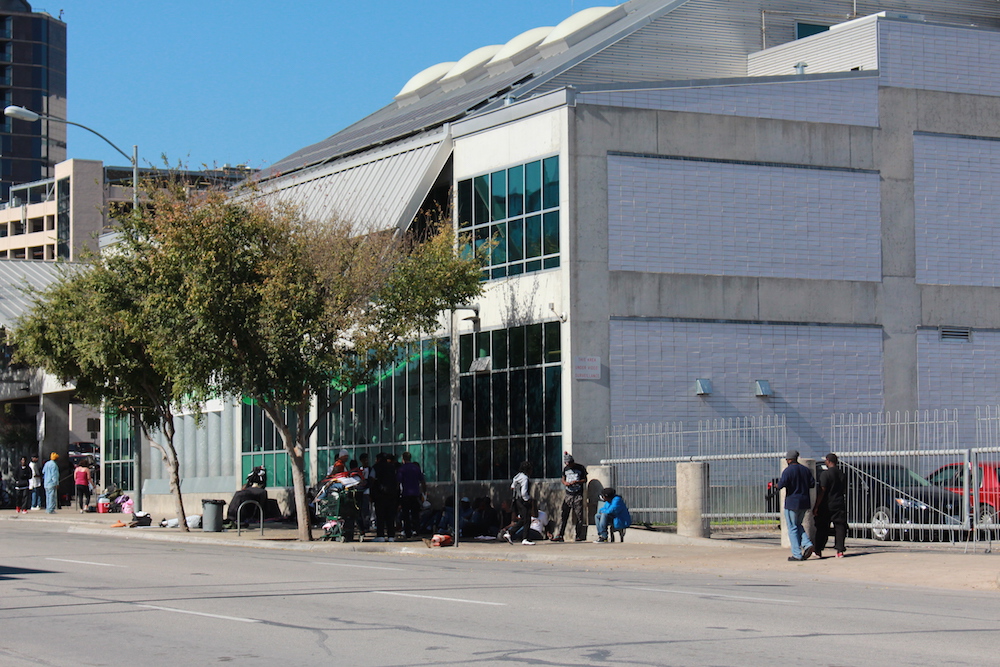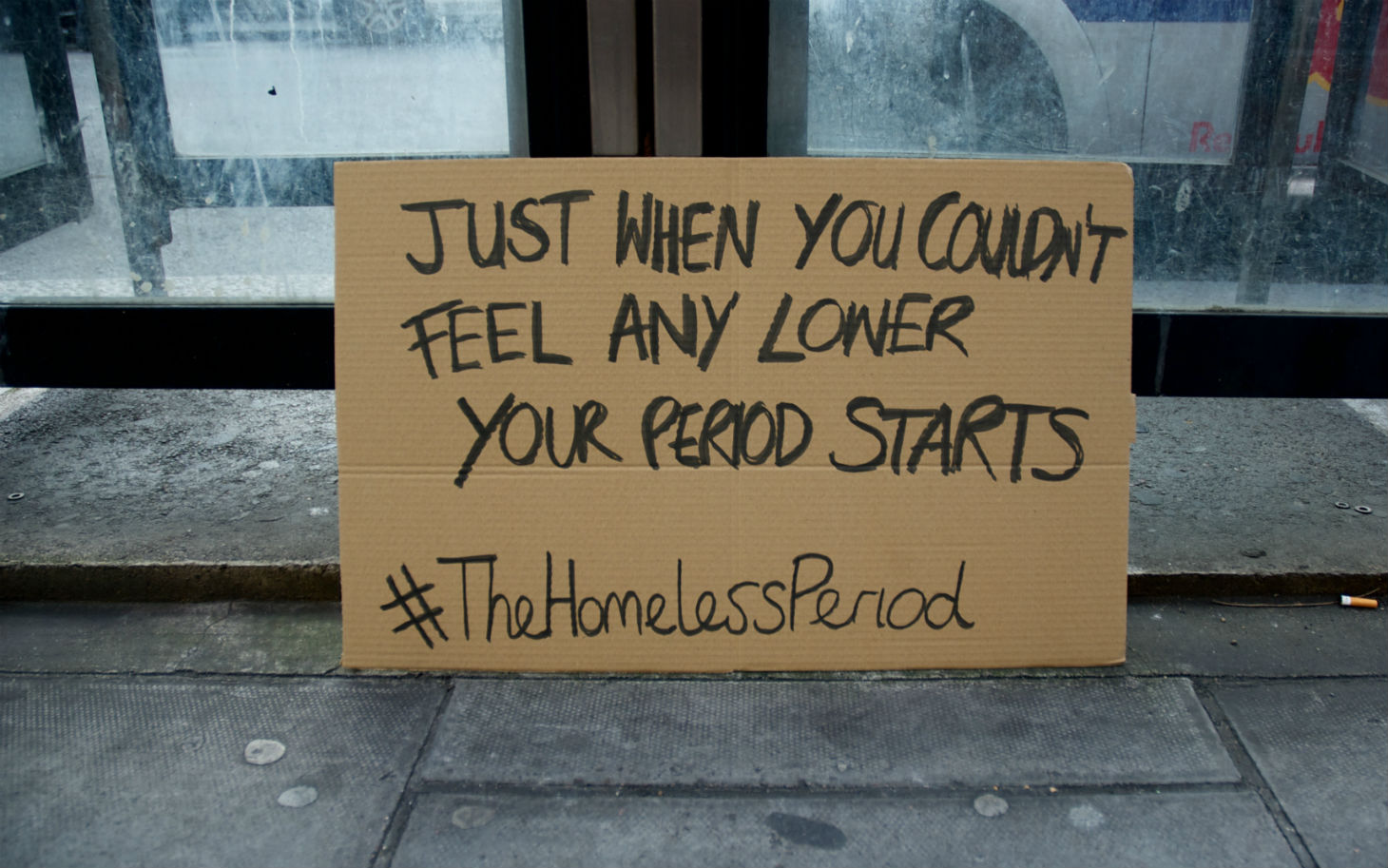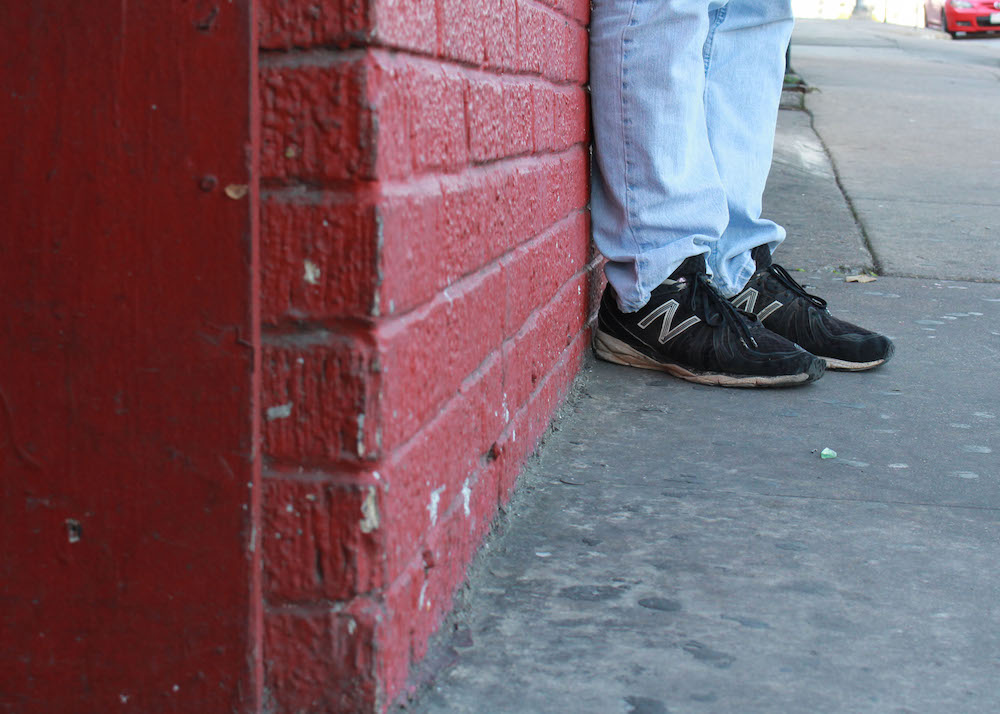Underfunded and undersupplied feminine hygiene products cause serious health risk.
AUSTIN — While life on the streets is far from easy, most people in need know where to go to find their next meal or a place to sleep. Shelters frequent most cities and many organizations reach out to help those who have no place to call their own.
But when it comes to the taboo issue of feminine hygiene, so many women are left without a place to turn for supplies or support.
The struggles around menstruation are tough for many women to deal with — regardless of their walk of life — but they undoubtedly add much more heartache for those who do not have access to supplies or places to help them maintain good hygiene during that time of the month.
Many shelters struggle to receive the supplies they need to help these women out.
“It’s not one of the items that people automatically think of when they donate toiletries,” said Rosanna Montilla, an associate at Care for the Homeless in an interview with Aljazeera America. “When you get to specific items like female hygiene products, you have to specifically ask for it.”
An article published in MedScape Ob/Gyn & Women’s Health by Martin Donohuge, MD, explains the many unique aspects of homelessness that contribute to hard-to-manage medical and mental disorders that include enhanced vulnerability to crime and violence, higher rate of pregnancy, higher rate of sexually transmitted infections, and higher risk of illness associated with lack of hygiene.
‘Homeless women are already at risk for
mental setbacks.’
“Homeless women are already at risk for mental setbacks,” said Brianna Roberts, one of four students developing a pilot program called “(fem)me,” that would supply hygiene supplies to women across Georgia. “Not being able to maintain their feminine hygiene leaves them feeling helpless, ashamed and vulnerable, and that cycles them back into that depression,” Roberts said at Governing.com.
Laura Samon (name changed) knows the once-a-month heartache women face and explains it is even more difficult to manage on the streets. Samon, who is no longer homeless, recalled her experience in the shelter:
“If I was lucky, I could get a small box of 10 tampons from the dollar store. These would have to last me the entire six days of my period,” Samon said.
“We had a ‘donation closet’ and if you needed certain things like tampons or pads or diapers, the volunteer would give you a handful to hold you over until you could get to the store and buy your own. If you couldn’t buy your own, most of the girls would just wait until the next shift to ask someone else for more — if they had any more,” she added.

Homeless gather outside Front Steps shelter in downtown Austin. Photo by Miranda Mason / The Rag Blog.
According to Barbara Broman, Director of Cross-Cutting Strategic Initiatives Health & Social Development Program, there is no clear-cut path for shelters to receive products to help with women’s hygiene.
“Some shelters use fundraised funds to purchase feminine hygiene products,” said Broman. “Some shelters receive donated supplies that they give out to individual participants. Some shelters make donated supplies available for common use. And some shelters refer guests to the local food pantry which may also stock such supplies.”
Many shelter volunteers and program directors cite the stigma around feminine hygiene as one of the main issues why it is difficult for shelters to receive the supplies they need to help ladies out.
Jayne Zenker, former shelter volunteer, saw these issues first hand.
‘There’s still that weird stigma that women have where mentioning their period…’
Zenker explained, “There’s still that weird stigma that women have where mentioning their period is embarrassing. They’d sometimes approach us [the women working there] to ask for products. The problem is that when people actually think to donate those supplies, they get the super cheap ones that end up making a huge mess.”
However, most experts and health care officials would agree — feminine hygiene product supplies in shelters are in alarmingly low supply and donations of feminine hygiene supplies are greatly appreciated.

Image from Aljazeera America.
Several non-profits and independent crowd-funding campaigns have kicked off to help raise money for feminine hygiene supplies or have hosted drives to help supply shelters with feminine care products. These organizations have helped thousands of women in need, but shelters are undoubtedly undersupplied.
Joanie Balderstone and Rebecca McIntire created Distributing Dignity in 2009 when they realized the serious issues displaced women were facing when it came to having access to hygiene products.
“As women, we couldn’t stop thinking about what it would be like to have an inadequate bra or none at all. Moreover, we couldn’t comprehend rationing out monthly supplies or worse…going without them,” Balderstone told reporters at WomenYouShouldKnow.org.
Balderstone and McIntire’s organization now helps to supply care packages of tampons and pads as well as new bras to women on the streets. As stated on their website, Distributing Dignity’s mission is to distribute new bras, pads, and tampons while enhancing the dignity of women in need.
With women as the fastest growing group of homeless population in the United States, the need for feminine hygiene supplies will not ease up any time soon. With the help of organizations, crowd-funding missions, and the generosity of the general public, hopefully soon the hygiene needs of women in need greatly diminishes.
In Austin, both women and men who need help with hygiene and other issues can contact Front Steps, whose mission is “to provide a pathway home through shelter, affordable housing, and community education.” Front Steps’ main shelter is located at 500 E 7th Street, Austin, TX 78701, and they can be reached at 512-305-4100.
[Miranda Mason is a freelance writer based in Austin.]


















